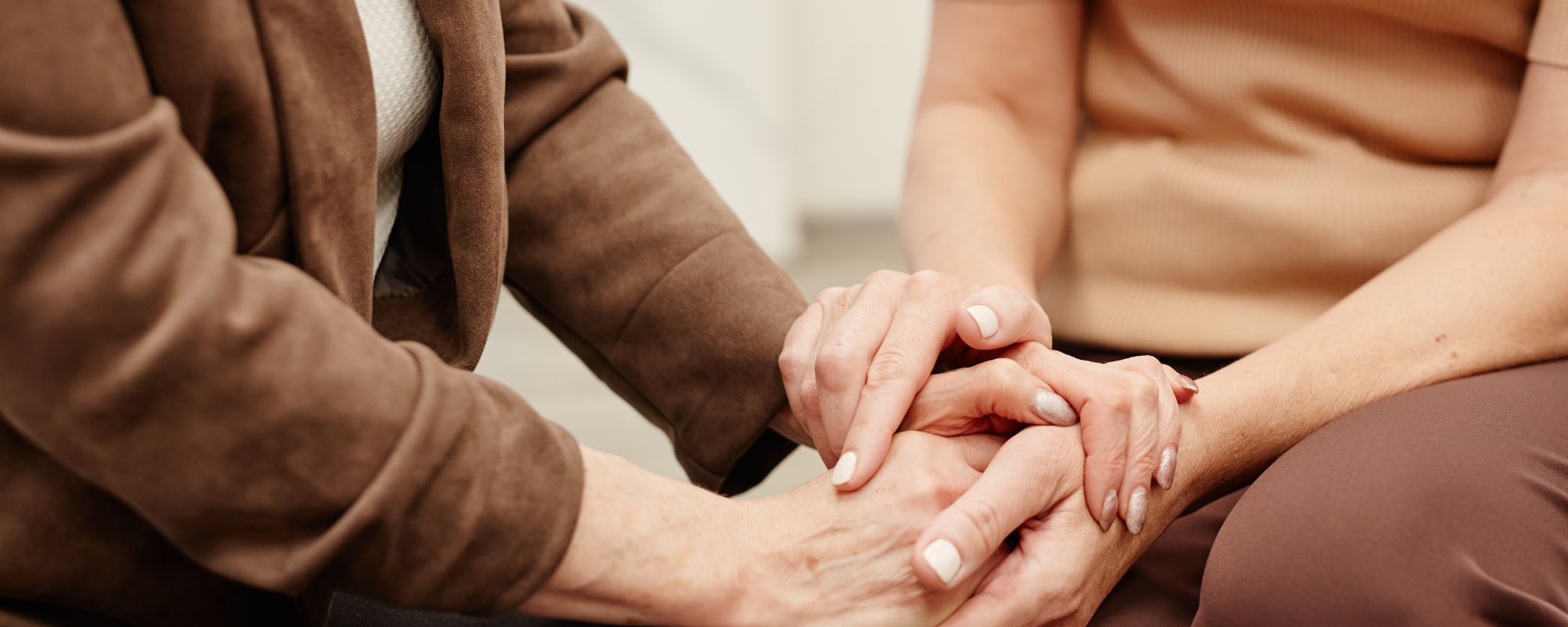Recovery holds some hardships, as you are on your way to rebuilding your life and the way that you’re living. Addiction recovery makes a drug or alcohol free life easier to live than your old life, which is why the changes you make in treatment will have lasting benefits.
During addiction treatment and during recovery, you may face cravings— especially in the detoxification process. Addiction has rewired your brain to depend its functioning on the presence of a substance, having completely disrupted our brain’s natural reward system and chemical balance. Cravings are short-lived, however, they can feel as if your urge to use drugs or alcohol has completely taken over your mind.
Cravings
Cravings can last anywhere from a couple of minutes to ten minutes. Sometimes, when you are in the midst of a craving, it can be overwhelming and intense because your mind can begin to obsess over and analyze that initial phenomenon of craving. Because of the mental effect of a craving, you may feel like the duration of the craving is much longer than it truly is, this is because your brain has reacted to the craving and your thoughts are keeping it alive. Despite what type of substance use disorder you have, cravings can vary in intensity and frequency from person-to-person. Whether you have drug cravings or cravings for alcohol, all cravings are temporary and can be overcome using skills and tools.
What Causes Cravings?
Cravings may seem to come out of nowhere, which is sometimes the case. What we know about cravings are most occur from internal or external triggers. For example, if you were an intravenous user, you may get a craving after seeing a needle. Alternatively, internal circumstances can be triggers all the same. Feeling sad or that your life is unmanageable could result in a craving. Internal and external triggers could include: environments, situations, feelings, people, places, and things.
Cravings are more commonly the strongest in early addiction recovery. The longer you are in recovery, usually, the less you have cravings— and those cravings seem to be of a lesser intensity. Cravings are normal to have, especially in drug rehab and recovery from addiction in any stage. If you are in rehabilitation from drugs or alcohol, you can expect to have cravings in the form of flooding thoughts, dreams, and even physical reactions.
How to Get Through Cravings
There are many skills and tools you will learn at Royal Life Centers which will help you effectively overcome cravings. At Royal Life Centers, we use a variety of intensive therapies, including: individual therapy sessions, group therapy, behavioral therapies, support groups, adventure therapy, activity therapy, and equine therapy. Behavioral therapies are especially helpful, as they teach guests how to anticipate and work through things like cravings, using skills and tools that will help you refocus in the moment.
There are a few things you should have or obtain in addiction recovery, which will greatly assist you in overcoming cravings and generally help you in the recovery process. Here are 5 things that you should have in addiction recovery— whether you are in an inpatient program, outpatient treatment, or have completed treatment:
- a sober support network
- a therapist
- a safety plan
- a journal
- know your triggers
A sober support network will be an invaluable resource for you during addiction treatment and through out your recovery. This support network should consist of people with solid time in recovery, stable mental health, dependability, etc. and you should build some form of trust with them.
If you are at Royal Life Centers, then this box has already been checked. Having a therapist that you can rely on for guidance and support is one of the most important resources for you through out your recovery journey. A therapist will validate your feelings without making you feel judged or abnormal.
A safety plan is something that you create, either by yourself or with the help of your therapist or peers. Basically, this safety plan is a series of steps you will take if you find yourself in extreme distress. The safety plan can contain anything from removing yourself from the situation to doing deep breathing exercises to listening to your favorite song. A safety plan should be as detailed as possible, leaving you with step-by-step instructions on how you will move forward and handle the distress.
Keeping a journal is extremely important in addiction treatment. In this journal, you can dedicate a section to jotting down coping mechanisms as you learn them, that way you have a valuable resource if you find yourself needing to use them. Put a star next to your favorite coping skills, so that they are easier to find in moments where you need to use the skill.
Identifying your triggers is an integral part of overcoming cravings. If you can recognize what triggers you, you are able to better anticipate and understand a craving if or when it comes. Work with your therapist to uncover your personal triggers, and this insight will help you immensely.
Now that we have discussed some of the key things you need as a foundation in recovery, we can talk about how to overcome your cravings. There are many methods to overcoming cravings, we have included a list below.
Before we begin listing some of the coping skills you can use, we think it’s important to start the process by taking about two minutes to practice some deep breathing. Try breathing in through your nose and out from your mouth. The deep breathing will calm you down, and bring more of your attention to the present moment. After some deep breathing, you are free to practice any of the following skills:
- Distract
- Draw/Paint/Sculpt
- Call someone
- Make a cup of tea
- Exercise
- Talk to someone
- Listen to music
- Journal
- Mentally compare
- Counter your emotions
- Meditate
- Fill your mind with different thoughts
- Ice
- Self-Soothe
- Pray
- “Play the tape”
Distracting can be achieved with a variety of activities, including: watching a tv show, watching a movie, coloring, working on a project, etc.
These skills also fall under the bracket of distraction. Not only is creating artwork cathartic, but they will also provide an outlet for expression of thoughts and emotions. Royal Life Centers offers art therapy under our umbrella of activity therapy. We believe in the healing power of art.
Call someone from your sober support network and tell them you are experiencing a craving. This person will talk you through the craving and provide advice, guidance, and support in the moment.
Turn your attention away from the craving by focusing on a task like making a cup of tea. Making and drinking the cup of tea is also a mindfulness exercise with sensory indicators that will help you stay present.
Try physical movement and wellness exercises to quiet the craving. Exercise is perfect for silencing your mind, and bringing your attention to what you are doing as opposed to what you are thinking.
Whether you talk to someone to tell them about your craving, or talk to someone to offer your support to something they are experiencing, you will find that a conversation where you are getting or giving help will be the perfect way to get you through the craving. Try not to keep what you are experiencing a secret, there is a sense of accountability and support that comes from being honest about what you are feeling or going through.
Another distracting skill, try listening to uplifting music with a faster tempo and beat. This music will promote productivity and allow your mind to refocus on something besides the craving. If you want to relax, try listening to music with a softer beat and slower tempo, as these types of songs will trigger a “relaxation response” in the brain.
This skill may seem regressive, as you are being asked to reflect on the craving in the moment, which some think could extend its duration and intensity, however, journaling about a craving will give it less power and space in your mind. Try journaling about what you think triggered the craving, how you’re feeling in the moment, and include some of the thoughts that are running through your mind. Journaling in the moment will not only provide you with a release, but it will also prove to be important information to share with your therapist.
Make comparisons with the current moment you’re experiencing and a moment where you overcame something really difficult. Comparing yourself to yourself will bring about strength, hope, and an understanding of the big picture. Think about a time when you were in crisis and overcame the obstacle successfully, and then compare that to the obstacle you are facing now. Chances are, you have been through worse and so you can get through this moment much more easily than you are allowing yourself to believe.
Feeling scared? think about someone daring.
Feeling sad? watch something comedic.
Feeling overwhelmed? do something in small increments to produce manageability.
Feeling angry? do, listen, or watch something that brings you joy.
Meditate in a way that visually pushes the craving away mentally. Visualize the craving as an object in your mind, and focus on it getting smaller and farther away until it is out of sight. Visualize yourself putting a wall between you and the craving. Visualize yourself fighting the craving and locking it away. Meditation can be extremely powerful, but your mind is the most powerful tool you have— in conjunction, you will be unstoppable.
Try imagining you decorating your future house, or looking at people and mentally deciding what profession they should pursue, watch a show and think about what your favorite character’s morning routine looks like, you can even try calculating math in your head to change your thought pattern.
Ice out the craving by using sensory distractions. Hold an ice cube and let it melt in your hand, splash ice cold water on your face, take a cold shower. All of these skills will allow you to successfully overcome any craving.
Do a face mask, put on comfortable clothes, spray yourself with your favorite perfume or cologne, put on body lotion, give yourself a shoulder or scalp massage, etc. Practice self-care with self-soothing activities.
Use this moment as an opportunity for spiritual growth. Surrender yourself to your higher power and pray, asking for your higher power’s will to take over your own. What would your higher power want you to do?
Go through the events that would follow a relapse, is it worth it? The answer is always no. Playing the tape and understanding the chaotic events and emotions that would follow giving into a craving is one of the most essential reactions you can have to a craving. Another helpful tool in this process is following the mental visualization of your actions and their pathways, is to create a pros and cons list for giving into a craving. You will quickly see the cons greatly outweigh the pros.
Kick the Craving
Above are just some of the tools and skills you can use to overcome a craving. At Royal Life Centers, we are experts when it comes to curbing a craving, and have many more resources available to our guests that will help them with any obstacle they face in recovery. Keep in mind that cravings are only temporary, and practicing these skills will help you get through the minutes of craving you may experience. At Royal Life Centers, our behavioral therapies are some of the most essential defenses for cravings, especially the Dialectical Behavioral Therapy that we offer. For more information, please reach out to us.
If you or someone you know is struggling with an addiction, please reach out to us at (877)-RECOVERY or (877)-732-6837. Our team of addiction specialists are available to take your call 24 hours a day, 7 days a week. Because We Care.
References:
https://web.archive.org/web/20190711032902/http://uwaims.org:80/webinars/slides/AIMS_MHIP_Distress_Tolerance_Skills.Slides_051310.pdf









